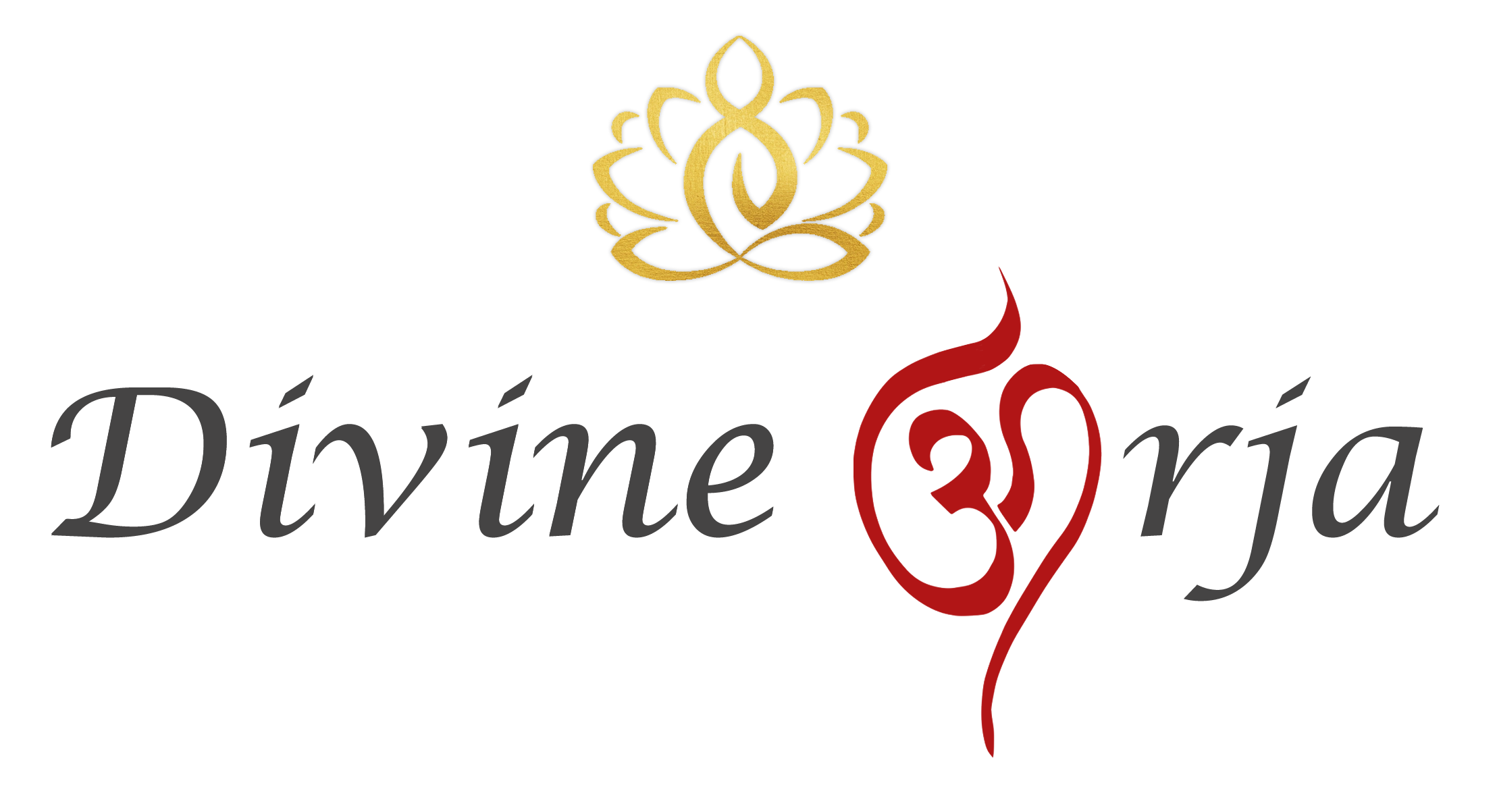“The voice of intuition is soft and subtle. If you can’t hear it, perhaps the world around you is too loud.”
I have asked these questions at the very onset when I began my spiritual journey.
What is this little voice people talk about?
How can you hear it?
Why am I not able to hear it and so on the plethora of questions were many.
I resonate with these questions because I’ve been there myself.
You have a situation in your life. You mind says to follow the logic but then there is this little voice nudging somewhere, asking you to not go that way. It leaves you frustrated and confused, and you don’t know where to go from here.
Haven’t you ever felt like this at some point in time in your life, desperately seeking guidance, really trying hard to listen. I have.
And then there are times when you are really trying hard to listen to your inner voice and you hear nothing? It’s as if your intuition—the inner wisdom you’ve heard so much about—has abandoned you.
But the truth is, intuition never stops speaking; it’s just that we have forgotten how to listen.
In the olden times, sages, mystics, and philosophers relied on intuition. It was their sole guiding force. Even The Bhagavad Gita, Upanishads, and other spiritual texts emphasize that our soul carries infinite wisdom and it is accessible when we tune in. But our modern life, full of noise, distractions, and conditioning, has created a thick fog (illusion) that separates us from this divine guidance.
So why can’t you hear your intuition? Let’s explore the science, spirituality, and real causes behind this disconnection—and more importantly, how do we restore this lost connection. But first let’s understand –
What is Intuition?
Intuition is often known as that “Gut Feeling”, “inner knowing”, “Inner insight”, “unconscious pattern recognition”, “to know something instinctively”. It is referred to as the ability to understand or know something without conscious reasoning. We can also refer it to that “inner sense” that can guide us in our decisions and actions. Intuition is beyond logic or learned responses that reveals who we are and the knowledge we have gained. We can also say that it operates largely outside of our conscious awareness. Therefore, one can say Intuition is like a quick, inner sense that gives you knowledge without you having to work it out consciously.
Intuition is our inner compass taking us towards the right path. It’s the voice of the soul, operating beyond logic, helping us make decisions, sense danger, and find our true purpose. Yet, many of us struggle to hear it. Why?
Here’s another way to think about it –
- Your brain is like a super-fast computer. It’s constantly taking in information, even when you’re not aware of it.
- Intuition is when that “computer” finds a pattern or a connection and then sends you a “feeling” or a “knowing” about it.
So, in short, intuition is:
- A “knowing” without “thinking.”
- A “feeling” that gives you information.
This “gut feeling is what guides us in our decision and actions when we train ourselves to use it. So let’s know what it entails and its key aspects.
It is a Non-conscious processing
Intuition operates outside of our conscious awareness. Our brains are constantly processing vast amounts of information, and intuition allows us to tap into this information without actively thinking about it.
It recognizes patterns
Intuition primarily involves recognizing patterns and connections that we may not consciously perceive. This can also stem from past experiences, learned knowledge, and subtle cues in our environment.
“Gut feelings” and bodily sensations
Intuition often manifests as physical sensations, such as a “gut feeling,” a sense of unease, or a feeling of excitement. These bodily responses make you aware, at times aid you understand and help provide valuable insights.
Immediate understanding
Intuition provides a sense of knowing that arises quickly and spontaneously, without the need for logical analysis or deliberation.
It’s Beyond logic
Intuition can provide visions, understanding, insight that go beyond the limitations of purely logical thinking. It can help us steer through complex situations where we are unable to find any clear-cut answers.
Intuition has also been given other perspectives, let’s see what they are-
There is a psychological perspective
Here the Psychologists often view intuition as a form of unconscious processing, where the brain rapidly analyzes information and draws conclusions.
Then we see a Spiritual perspective
In many spiritual traditions, intuition is seen as a connection to a higher source of wisdom or inner guidance.
Last but not the least we also see Philosophical perspective:
Philosophers have long debated the nature of intuition and take a normative approach to intuition exploring its role in knowledge and decision-making.
Science Meets Spirituality
- The Science of Intuition – Your Second Brain at Work
Scientists have studied intuition for decades, revealing that it is far from mere superstition. Intuition is the result of subconscious pattern recognition, gut-brain communication, and rapid decision-making mechanisms that bypass the analytical mind.
- Gut Feeling Is Real
The enteric nervous system (sometimes called the “second brain”) in our gut has over 500 million neurons, which directly communicate with the brain. This is why you “feel” things in your stomach before your mind even processes them. - The power of the Subconscious Mind’s
Studies in psychology suggest that 95% of decisions are made subconsciously before we even realize them. Malcolm Gladwell’s book Blink highlights how split-second gut instincts can often be more accurate than logical analysis. - Neuroscience & Intuition:
The right hemisphere of the brain, responsible for creativity and holistic thinking, is deeply connected to intuition. Research shows that those who engage in meditation and mindfulness have a stronger ability to access intuitive insights.
- The Spiritual Perspective: Intuition as the Voice of the Soul
Intuition is often described as the “inner voice” or “higher self.” Spiritual texts align with modern science in suggesting that this wisdom comes from beyond logic.
- The Third Eye Connection: The Ajna Chakra (third eye chakra) in Vedic traditions is believed to be the seat of intuition. When blocked, we struggle to trust our instincts.
- The Bhagavad Gita’s Wisdom: Krishna tells Arjuna, “When your mind has crossed the maze of delusion, you shall see all things in the Self.” This implies that intuition is available when we clear the clutter of the mind.
- Intuition is the Concept of Inner Knowing: The Upanishads mention Prajñā (pure wisdom), which is different from learned knowledge. It is an intuitive knowing, available when the mind is silent.
Why You Can’t Hear Your Intuition – The Blockages
- Mental Clutter & Overthinking
We live in an age of information overload. The constant stream of thoughts, notifications, social media updates, and daily worries act as a wall between us and our intuition. It’s a relentless stream of stimuli.
- Overthinking drowns out the subtle voice of intuition. Instead of listening to our gut, we analyse things excessively, leading to indecision and confusion.
- Spiritual teachings warn about the mind’s chatter. The Yoga Sutras of Patanjali discuss the need for Pratyahara (withdrawal of senses) to hear the inner voice. The Yoga Sutras of Patanjali also talk about the concept of ” Yoga chitta vritti nirodha” (yoga is the cessation of the fluctuations of the mind) is paramount. The goal of yoga and meditation is to calm the mental waves, creating space for inner clarity.
Chitta: The mind, including thoughts, emotions, memories, and perceptions
Vritti: The oscillations or waves of the mind, or the constant stream of thoughts and mental activities
Nirodha: The cessation, calming, or regulation of the mind’s fluctuations
This resonates with the Buddhist concept of “monkey mind,” the restless and uncontrolled nature of our thoughts.
Solution:
- Practicing stillness and meditation helps clear the noise and allows intuitive insights to surface naturally.
Mental Blocks to Intuition
- Our mind sends millions of thoughts out to the universe, many of which we are not even aware of. It happens naturally. Our minds are wired to seek logic and patterns in everything, at times then leading to Overthinking. But excessive reliance on rational thinking can suppress intuitive insights.
The Bhagavad Gita states, “A person who is established in yoga relinquishes both good and bad deeds in this life itself. Therefore, strive for yoga, which is the art of working skillfully.” This verse hints at balancing intellect with inner wisdom. - There is always a doubt creeping in the mind, Fear of Being Wrong. Many people start second-guessing their intuition because they fear making a mistake. This self-doubt creates a wall between you and your intuition. Carl Jung once beautifully said, “Intuition does not denote something contrary to reason, but something outside the province of reason.” Trust is key to unlocking intuitive messages.
- Constant Distractions With social media, endless notifications, and the demands of daily life, does not allow the mind to quiet. Our minds rarely get the silence they need to tune in with the higher self or intuition as we say. Meditation and mindfulness practices can create space for intuition to surface.
Emotional Baggage & Unresolved Trauma
Intuition is said to be closely linked to emotions. When we carry fear, anxiety, past wounds, or emotional pain, it creates an energetic block. Unprocessed Trauma and Emotional Wounds Painful past experiences can create emotional noise, making it difficult to hear intuition.
The Bible mentions in Proverbs 3:5-6, “Trust in the Lord with all your heart and lean not on your own understanding; in all your ways submit to Him, and He will make your paths straight.”
When we are able to clear, release emotional burdens, clarity follows.
- It is also said that when we attach ourselves to the outcome and only want to heat what we want to hear rather than what is true, it distorts our intuitive messages. Surrendering to divine and allowing space for intuition helps realign our inner voice.
- In the Shadow Work by Carl Jung, he suggested that when we suppress emotions, they create an inner conflict, a turmoil that prevents intuitive clarity.
- The heart’s electromagnetic field is more powerful than the brain’s. Scientific studies show that intuitive insights often arise in the heart before reaching the mind, hence is it also called as Heart-Centered Intuition.
- It is said that Fear Blocks Intuition. When we are afraid, we start seeking external validation and don’t trust our instincts, again creating a layer between us and the intuition to surface.
Solution:
- Healing practices like inner child work, journaling, and energy clearing can remove emotional blocks.
Disconnection from the Body
If you have noticed, then you would understand that Intuition often speaks through physical sensations—a tight stomach, goosebumps, a sudden lightness in the chest. But many of us refuse to listen to these body signals and refuse to listen to what the body is whispering to us and stay disconnected from our body’s signals.
- Scientific Evidence and Research on the gut-brain axis proves and tells us that the body processes intuitive decisions before the conscious mind does.
- Whereas the Spiritual Perspective that we have seen across ages tells us the need of the mind -body connection is imperative to enhance intuitive perception. Yoga has clearly been with us showing this way.
- It is also said that when the body is unwell or fatigued it has Poor Health and Low Energy leading to intuitive messages become faint.
Solution:
- Body awareness practices like yoga, breathwork, and grounding can help reconnect with these signals.
- Practices like yoga, breathwork, and a balanced diet support a clear energy flow, enhancing intuitive perception
Lack of Silence & Presence
Intuition is a that “little voice” in you, that tiny whisper which is prevalent and not like a shout. If our lives are too noisy filled with distractions, entertainment, and digital overload then we cannot listen to our intuition.
- The Bhagavad Gita emphasizes that wisdom arises in stillness.
- Many sages and enlightened beings sought solitude to strengthen their intuitive abilities.
Solution:
- Digital detox, spending time in nature, and practicing mindful silence can help amplify intuitive awareness.
Skepticism & Lack of Trust
Many people have been conditioned to believe that intuition is irrational or unreliable. This societal Skepticism weakens our ability to trust our own instincts.
- Studies on Decision-Making: Research shows that people who trust their intuition often make better choices than those who rely solely on logic and studies on Decision Making has proved that.
- Ego vs. Intuition: The ego creates doubt, while intuition is a knowing beyond logic.
Solution:
- Keeping an intuition journal helps track small intuitive hits, building confidence over time.
Low Vibration & Energy Blocks
Your energetic state directly impacts intuition. Negative emotions, toxic environments, and unhealthy habits create a fog that dulls intuitive clarity.
- The Third Eye or Ajna Chakra is associated with Intuition. When the Third Eye chakra and Solar Plexus (self-trust) are imbalanced intuition weakens. A blocked or imbalanced Ajna chakra due to excessive screen time, lack of sunlight, or poor sleep can weaken intuitive clarity.
- What you eat is what you become. And that is exactly what the ancient texts suggest. Sattvic (pure) food enhances mental clarity and intuition.
Solution:
- Eating high-vibration foods, energy healing, and maintaining a positive environment help restore intuition.
Spiritual and Paranormal Blocks to Intuition
When we neglect our spiritual practice, intuition fades. Scriptures and texts across various religions and traditions highlight the need for inner connection.
The Upanishads say, “As is your deep, driving desire, so is your will. As is your will, so is your deed. As is your deed, so is your destiny.” Spiritual alignment strengthens intuition.
The Influence of Negative Energies, Certain environments or people can drain your energy and create energetic blockages. Practices like energy cleansing, smudging, or prayer protect intuition from external interference.
How to Reconnect with Your Intuition – Practical & Spiritual Solutions
- Silence the Mind with Meditation & Mindfulness
- A 5-minute daily meditation helps create inner silence.
- Deep breathing techniques clear mental fog.
- Heal Your Emotional Wounds
- Shadow work and forgiveness practices clear old blockages.
- Expressing emotions through journaling removes subconscious fears.
- Reconnect with Your Body
- Body scanning, yoga, and mindful walking improve intuitive sensitivity.
- Paying attention to physical sensations when making decisions.
- Reduce the External Noise, Digital Detox & Nature Connection
- Spending time in nature, barefoot grounding, and sun gazing helps reset intuition.
- Reducing screen time increases self-awareness.
- Strengthen Your Third Eye Chakra
- Practices like Trataka (candle gazing), visualization, and mantra chanting open the third eye.
- Using crystals like amethyst and lapis lazuli enhances intuitive clarity.
- Trust & Act on Small Intuitive Nudges
- Start with small intuitive decisions (choosing food, deciding on routes, etc.).
- Keeping an intuition journal helps track progress. Writing intuitive thoughts can strengthen trust in them
Your Intuition is Always Speaking—Are You Listening?
Intuition is a birthright, It is always speaking to you, an ancient wisdom encoded within us. If you feel disconnected, it’s not because intuition is lost, but because it’s buried under noise, fear, and conditioning.—it is simply a matter of clearing the noise. By overcoming mental, physical, emotional, and spiritual blocks, you can awaken this inner guidance and walk the path meant for you with clarity and confidence.
As the wise have said, “When you quiet the mind, the soul will speak.”
Today, take 5 minutes of silence and listen—your soul has something to say. Are you ready to hear it?



